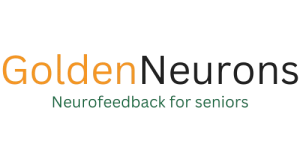Now you’re back at your desk, ready to dive right back into work, but your client’s file has disappeared! Thus begins an I-had-to-be-there-5-minutes-ago-and-WHERE-ARE-MY-CAR-KEYS?? kind of search. Finally, you hit gold in the waste paper basket. You take a deep breath, will yourself to focus, and turn to your computer screen. Sheesh. It’s 4:50. Again.
All too familiar? Check out these 3 life-changing tips that will help keep you focused and organized at work, and most importantly — move the needle.
Neurofeedback therapy is a type of biofeedback that focuses on training the brain to improve its function. It works by monitoring brainwave patterns and providing real-time feedback to help individuals regulate their brain activity.
The non-invasive and drug-free nature of neurofeedback makes it an attractive option for those seeking natural ways to manage anxiety. By training the brain to function more efficiently, individuals can experience lasting improvements in their mental health and overall well-being.
Anxiety disorders are the most common mental health disorders, affecting millions of people worldwide. These disorders include generalized anxiety disorder (GAD), panic disorder, social anxiety disorder, and specific phobias.
Traditional treatment options for anxiety typically involve medication, therapy, or a combination of both. Medications such as antidepressants and benzodiazepines can be effective but often come with side effects and the potential for dependency. Cognitive-behavioral therapy (CBT) is a common therapeutic approach that helps individuals change negative thought patterns and behaviors.
While these treatments can be effective, many people seek additional or alternative methods to manage their anxiety. Neurofeedback offers a natural, holistic approach that can complement traditional treatments or serve as a standalone therapy for those looking to reduce their reliance on medication.
Anxiety is often associated with imbalanced brainwave activity. For example, an overactive beta wave activity can lead to feelings of anxiety and restlessness, while an underactive alpha wave activity can result in difficulty relaxing and unwinding. Neurofeedback therapy aims to address these imbalances by training the brain to produce healthier brainwave patterns.
Neurofeedback works by providing real-time feedback on brainwave activity. During a session, sensors are placed on the scalp to measure brainwaves. This data is then displayed on a screen, allowing individuals to see their brain activity in real-time. Through visual or auditory feedback, individuals learn to modify their brainwave patterns, promoting a more balanced and relaxed state. Over time, the brain learns to maintain these healthier patterns, leading to reduced anxiety and improved overall mental health.
Neurofeedback therapy for anxiety offers a natural and non-invasive solution for those seeking alternative treatments. Unlike medication, which can come with a host of side effects, neurofeedback is a safe, drug-free treatment for anxiety. By training the brain to regulate itself more effectively, individuals can achieve lasting relief from anxiety without the need for pharmaceuticals. This approach answers the question, “Can neurofeedback help with anxiety?” with a resounding yes.
Many people struggling with anxiety rely on medication to manage their symptoms. However, neurofeedback offers a promising alternative. By addressing the root cause of anxiety—imbalanced brainwave activity—neurofeedback can reduce the need for medication. In some cases, individuals may even be able to eliminate their reliance on medication altogether, enjoying the benefits of a drug-free treatment for anxiety. This makes neurofeedback a compelling option for those looking to minimize or avoid pharmaceutical interventions.
Numerous studies have demonstrated the effectiveness of neurofeedback therapy for anxiety. Research has shown that neurofeedback can significantly reduce anxiety symptoms by promoting healthier brainwave patterns. For instance, a study published in the Journal of Clinical Psychology found that neurofeedback led to significant reductions in anxiety and improvements in overall mental health. This supports the efficacy of neurofeedback for anxiety as a reliable treatment option.
Neurofeedback therapy for anxiety offers a myriad of benefits that make it a compelling choice for those seeking effective, long-lasting relief. By leveraging the brain’s ability to regulate itself, neurofeedback provides a natural and non-invasive treatment option that can lead to significant improvements in anxiety symptoms. This drug-free treatment for anxiety not only helps in reducing the reliance on medication but also enhances overall mental well-being and quality of life.
The holistic nature of neurofeedback therapy addresses the root cause of anxiety by promoting healthier brainwave patterns, which in turn leads to better emotional regulation and self-control. The long-lasting effects and the potential for improved cognitive and emotional functioning make neurofeedback a valuable addition to traditional anxiety treatments.
If you’re struggling with anxiety and are looking for a safe, effective, and natural solution, consider neurofeedback therapy. This innovative approach can help you achieve a more balanced and relaxed state of mind. Contact NeuroClinic Jerusalem today to learn more about how neurofeedback can transform your mental health and help you regain control of your life.



